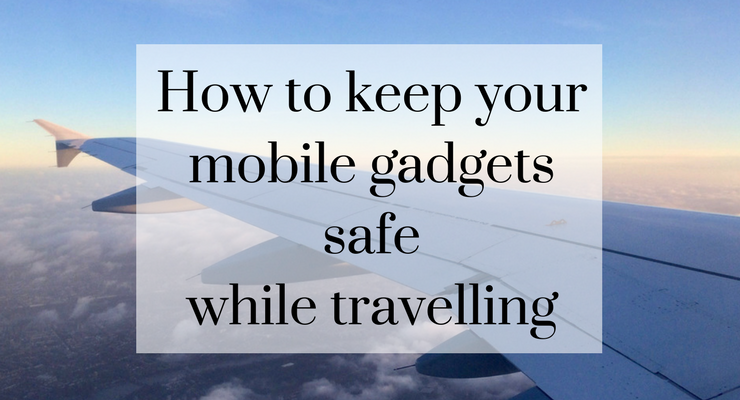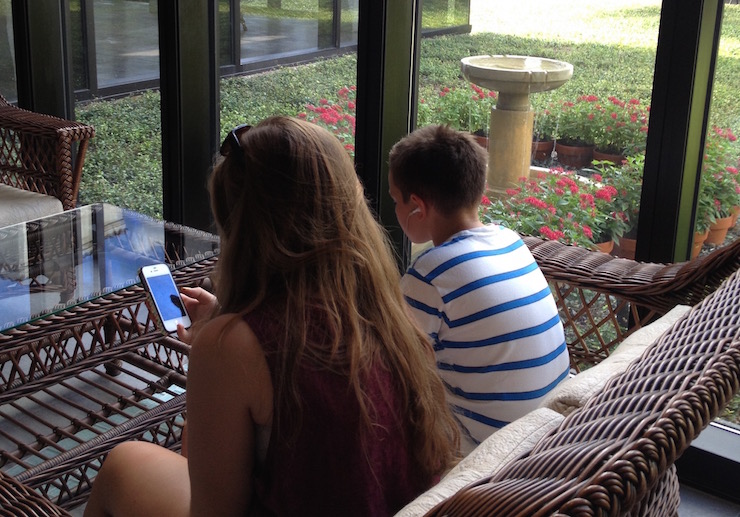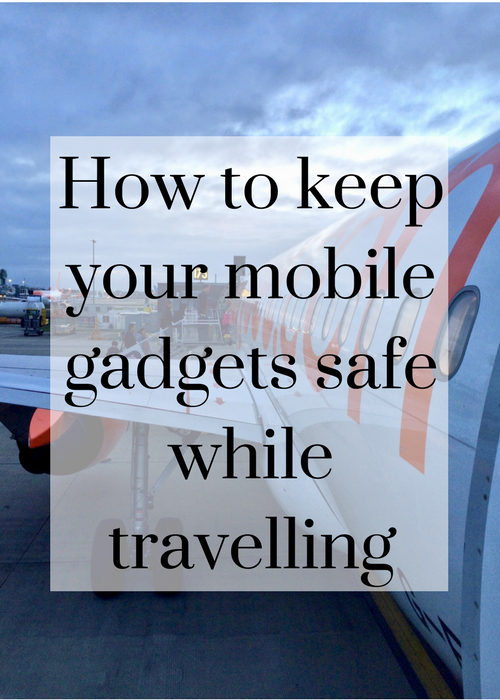
If you and your family take mobile phones, tablets or laptops with you on your travels, how do you protect them? And how can you keep your children safe online when you’re away from home?
Protecting your mobile devices
Mobile devices can contain a huge amount of personal information, and if they’re lost or stolen it can cause you a lot of problems. But there are steps that you can take to protect yourself and your family:
- Take out adequate insurance to cover the loss or theft of your gadgets. Not all travel insurance policies include this, so you may need to buy an add-on to your policy. Some home contents insurance policies cover items away from home, or allow you to pay a supplement for gadget cover on the move. (For help with this, check out my article How to find family travel insurance).
- Keep your apps up to date, and delete any which you don’t use. Software updates often include security patches, so if you don’t keep on top of updates, your devices may not be protected as well as they could be.
- Protect your devices with passwords or biometric security. Without this, anybody can access your data.
- Make sure that auto-lock is switched on, to make it harder for others to access your devices.
- Back up your data and photos before you travel. Then, if something happens to one of your gadgets, you won’t lose precious photos and personal information.
- Think carefully about which devices to take on your travels. Do you really need a laptop with you, for example? Could you take an old phone rather than your current one?
- Be careful when using public WiFi hotspots, as hackers can use these to steal passwords and other information, especially where networks aren’t password protected.
- Switch off Bluetooth when you’re not using it. When Bluetooth is on, it’s much easier for hackers to access your device.
- Think about using a digital security service such as Kaspersky. This service uses cloud-based technology (so it doesn’t use up much space on your devices) and uses VPN connection to secure you when connecting to unknown WiFi networks, to protect you from identity theft and other nasties, even when you’re on the move.

At the Charles Hosmer Morse Museum of American Art, Florida. Copyright Gretta Schifano
Staying safe online
With your devices protected and ready to go, it’s still important to think about your kids’ online activity when they’re out and about. When they’re online, your children can encounter inappropriate content, online grooming, cyberbullying, or any number of other things which you’d rather they didn’t. You can set up parental controls on your home broadband, and with your child’s phone service provider, you can keep an eye on what they’re doing when they’re with you, but what happens when you, and they, are travelling? What can you do to help them stay safe online?
- I think that good communication between you and your kids is crucial here. From when your child first accesses the internet, talk with them about online safety and behaviour, and keep on talking about it with them as they grow up and their activity changes and they become more independent. Just because you discussed online stranger danger with your child when they were seven years old, it doesn’t mean that they won’t be tempted to meet up with an online ‘friend’ when they’re 13. Keep talking to them about stuff in a non-judgemental way so that they feel that they can tell you about anything online (or elsewhere) which doesn’t feel right.
- Use social media. Even if you don’t see the point of it, engage with it so that you have an understanding of how kids socialise and what their world is like. If you don’t understand how to do it, ask your children to show you.
- Make sure that you and your kids know how to use the privacy settings on your social media apps, so that posts and updates are only seen by people that you want to see them.
- Decide together what your family rules are about the internet and mobile devices, and stick to them. For example, in our family we have a strict ‘no-phones-at-the-table’ rule so that we talk and pay attention to each other at mealtimes, whether we’re at home or away somewhere. (My husband’s the biggest rule-breaker on this one!)
- In the interests of balance, I think that it’s really important to encourage your kids to be active and to actually meet up with their friends, rather than just socialising online. If your child shows an interest in any kind of sport, outdoor or other activity, engage with this and support them as much as you can, even if it’s not your thing. (Boxing is my 14 year-old’s latest passion. It makes me yearn to be shivering at the side of a football pitch, watching a match which I don’t understand).
- I asked author Jamie Bartlett for his top tip for parents to help children stay safe online. His book The Dark Net
is about hidden internet subcultures. Jamie says: ‘My top advice is for parents to at the least familiarise themselves with internet subcultures and its worrying elements – you cannot help if you do not even understand the problem!’
- The NSPCC provide helpful advice on this issue. They say: ‘Social media sites and apps have become a huge part of our children’s lives, and it’s important to make sure they are being kept safe online as the internet can be easily exploited by those with more sinister motives. Which is why it’s vital parents talk to their children about online safety. Parents need to feel confident that their children are protected when they’re online, and setting up parental controls and privacy tools alongside regular chats about their digital lives, can go a long way to minimizing the risks. The NSPCC and O2’s Net Aware site also offers a no nonsense guide on social network sites to help parents keep up to date with information, risks, and issues on sites their children are using.’
- Check out Kaspersky Security Cloud Family Package. It covers up to 20 devices via one account, allowing you to tailor the safety settings for each device. You can monitor and control the usage of each device, and prevent access to websites which you don’t want your kids to visit. If you do use a service like this, make sure that you talk to your kids about it so that they know what you’re doing and why.

Over to you
Do you have any tips to add? How do you help your kids stay safe online away from home, and how do you protect your mobile devices when you’re travelling?
Disclosure: This post is sponsored by Kaspersky but all words, opinions and images are mine, as ever.


I think all regular travellers who use technology have concerns about backing up devices and keeping data safe while on the road. Thanks for your tips.
You’re welcome – thanks for commenting Stuart.
Golly this is all so worrying, don’t think I would cope nowadays. All I had to worry about when were on Family Holiday was what my children were writing in their holiday log books
It’s a whole new world!